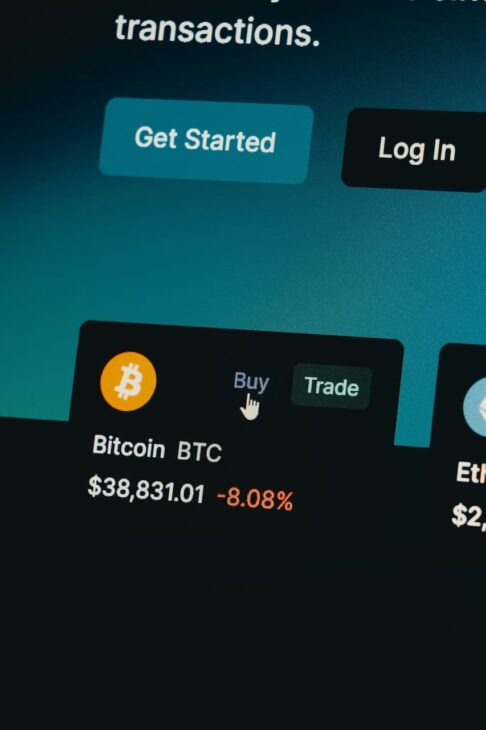Blockchain technology, initially developed as the underlying structure for cryptocurrencies like Bitcoin, has now become a transformative force in various industries. At its core, blockchain is a decentralized digital ledger that records transactions across multiple computers in a way that ensures security. This innovation holds significant potential for supply chain management, a crucial component of global trade. Effective supply chain management ensures the smooth flow of goods and services from producers to consumers, but it faces numerous challenges, including inefficiencies, lack of transparency, and security issues. Blockchain technology addresses these problems by offering a robust foundation for improving various aspects of supply chain operations.
Enhancing transparency and traceability
Imagine being able to trace your morning coffee back to the farm where the beans were grown, knowing every step taken on the way to your cup. Blockchain makes this level of transparency possible. Its immutable ledger records every transaction and movement of goods in a transparent and tamper-proof manner.
Take Walmart for example. By integrating blockchain technology, Walmart has reduced the time it takes to track the origin of products from days to seconds. This improved traceability ensures product authenticity and quality, quickly identifying any issues such as contamination or the need for a recall. For consumers, this means peace of mind and confidence in the products they purchase. For businesses, this means increased accountability and streamlined operations.
Blockchain also opens up new opportunities for small farmers and producers, allowing them to interact directly with end consumers and avoid intermediaries. This not only increases income for producers, but also contributes to a more equitable distribution of resources.
In healthcare, blockchain technology helps protect patient medical data by ensuring its integrity and confidentiality. In the financial sector, blockchain reduces costs and speeds up transactions by eliminating the need for intermediaries and minimizing the risk of fraud.
Increasing efficiency and reducing costs
In the fast-paced world of supply chains, efficiency is crucial. Blockchain excels here through smart contracts — self-executing contracts where the terms are directly written into code. These contracts automatically trigger actions when conditions are met, eliminating intermediaries and reducing paperwork that slows down traditional processes.
Consider the shipping industry, where platforms like TradeLens use blockchain to facilitate seamless data sharing about shipments among all participants — shippers, freight forwarders, and customs authorities. The result? Faster processing times, fewer administrative hurdles, and significant cost savings. By removing intermediaries and automating transactions, blockchain not only reduces costs but also enhances the overall efficiency of supply chain operations.
Enhancing security and reducing fraud
In a world where counterfeit goods and fraud are rampant, blockchain’s cryptographic security features provide a much-needed shield. Each transaction is encrypted and linked to the previous one, creating a chain that is virtually impossible to change undetected. This security is vital in industries such as pharmaceuticals, where the authenticity of drugs is of paramount importance.
Blockchain eliminates counterfeit products, protecting consumers from potentially harmful products. By protecting supply chains from fraud, blockchain protects both businesses and consumers, creating a safer and more trustworthy marketplace.
Additionally, blockchain is finding application in other mission-critical industries, such as the financial sector, where security and transparency of transactions are critical. Due to the decentralized nature of the blockchain, the possibility of a single point of failure is eliminated, which makes the system more resistant to hacks and failures.
In logistics and supply chain management, blockchain makes it possible to track the movement of goods at every stage of their journey, from production to the final consumer. This significantly reduces the risk of counterfeiting and theft, increasing trust between all participants in the process.
In addition, blockchain helps improve data and document management. In the medical field, for example, patient data can be stored securely and immutably, ensuring its confidentiality and availability only to authorized persons.

Simplifying real-time tracking and Data Sharing
Imagine tracking goods in real-time from the moment they leave the factory to their arrival at the destination. Blockchain makes this a reality, providing a single, shared version of the truth accessible to all stakeholders.
Global shipping giant Maersk uses blockchain to provide real-time cargo visibility to everyone involved in the delivery process. This transparency enhances collaboration and decision-making, ensuring accurate inventory management and prompt resolution of disruptions. With blockchain, real-time tracking is not just possible — it is the new standard.
In conclusion, blockchain technology is not just a buzzword; it is a powerful tool transforming supply chain management. By enhancing transparency, efficiency, security, real-time tracking, and data sharing, blockchain is setting a new standard for supply chains worldwide. As we look to the future, blockchain’s role in supply chain management will only continue to grow, revolutionizing the way goods move around the globe.









